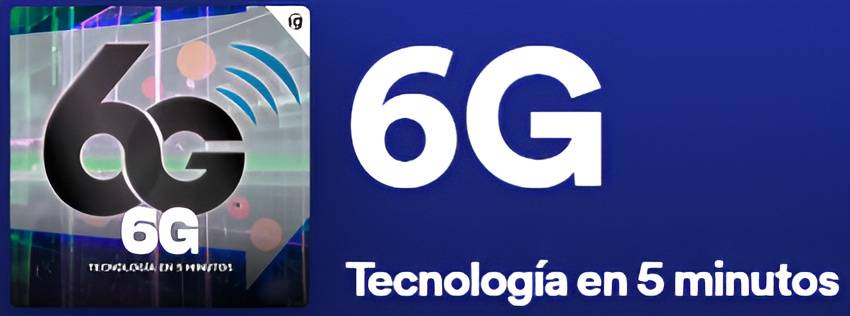¿Qué nos espera con la tecnología 6G? Carlos J. Bernardos, invitado al Podcast «Tecnología en 5 minutos», habla sobre el futuro de la conectividad

El pasado 9 de mayo, el Profesor Carlos J. Bernardos, catedrático de la Universidad Carlos III de Madrid, fue invitado al podcast de José Antonio Gelado (@jagelado) titulado «Tecnología en 5 minutos». Apenas estamos asimilando las ventajas que nos ofrece el 5G cuando ya nos preparamos para recibir a su sucesor: la tecnología 6G. ¿Qué nos depara esta nueva era de conectividad? ¿Cuáles son las mejoras significativas que podemos esperar?
5G, with its low latency and exceptional transmission speeds, has already transformed our connectivity experience. However, 6G aspires to take this revolution a step further. Carlos J. Bernardos assures us that the next generation of mobile technology promises to further increase speed and reduce latency, ensuring faster and more stable connectivity than ever before. But that's just the beginning.
The true innovation of 6G lies in its ability to enhance the accuracy and reliability of the network. How will it achieve this? The answer lies in Artificial Intelligence. The massive integration of AI will not only optimize the network but also endow it with its own intelligence, transforming it from a simple connectivity tool to an intelligent system that can adapt and learn autonomously.
In summary, 6G technology promises more speed, less latency, and greater precision in data transmission. But are there any drawbacks? According to Carlos J. Bernardos, the outlook is mostly positive. Although there is some uncertainty about whether 6G will be widely adopted, its potential benefits are undeniable. From improving society's sustainability to reducing pollution, 6G has the potential to transform our world in unimaginable ways.
Additionally, it's worth noting that energy efficiency will also be a priority in 6G design, meaning it will consume less energy than its predecessors. This not only benefits the environment but also contributes to cost reduction and increased autonomy for connected devices.
And when can we expect 6G to enter our lives? According to estimates, we could see the first prototypes as early as 2028, with more widespread adoption by 2030.
Lastly, what practical applications can we expect from this new technology? Carlos J. Bernardos offers some ideas: from advanced automation in factories to holographic communications and the connection between the physical and digital worlds through digital twins, 6G will open the doors to a future full of possibilities.
In conclusion, 6G technology promises unprecedented connectivity, which could transform our society and our interaction with the world.




